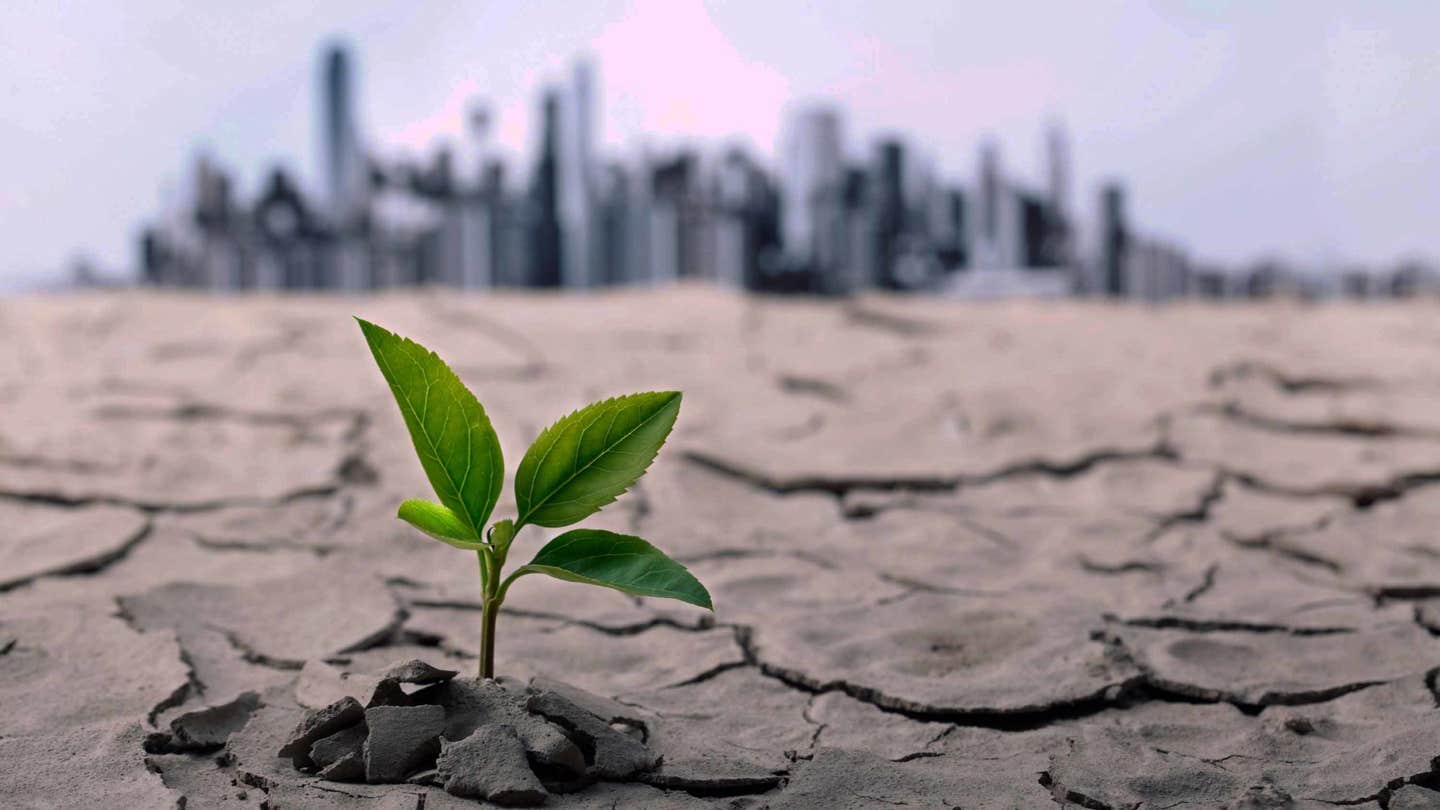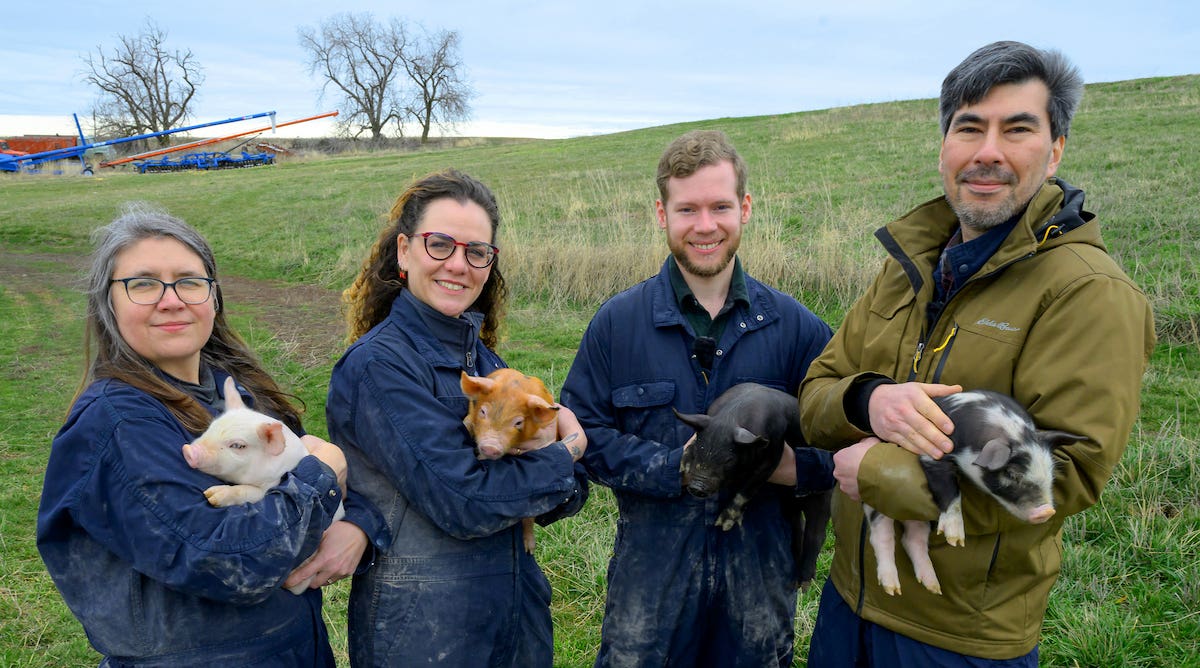Evolution is hindering humans from solving climate change, study finds
Central features of human evolution may stop our species from resolving global environmental problems like climate change

[Jan. 3, 2024: JD Shavit, The Brighter Side of News]
Central features of human evolution may stop our species from resolving global environmental problems like climate change. (CREDIT: Getty Images)
Central features of human evolution may stop our species from resolving global environmental problems like climate change, says a new study led by the University of Maine.
In a groundbreaking research project, evolutionary biologist Tim Waring and his team delved into the intricate relationship between human evolution, cultural adaptation, and the environmental challenges we face today. Their findings, published in the Philosophical Transactions of the Royal Society B, highlight the complex interplay between our species' rapid cultural evolution and the pressing need for global cooperation to address environmental crises.
The Evolution of Human Exploitation of Resources
The study aimed to answer three fundamental questions: how human evolution has interacted with environmental resources, how it has contributed to global environmental crises, and how it might influence future human evolution. Through their research, the team uncovered a fascinating pattern of human adaptation to the environment.
Over the past 100,000 years, human societies have progressively increased their use of various resources with greater intensity, scale, and environmental impact.
Related Stories
Expansion was largely facilitated by the rapid cultural adaptation of human groups, which allowed them to exploit and control environmental resources efficiently. This cultural evolution, which occurs much faster than genetic evolution, has enabled humans to colonize habitable land worldwide.
However, this expansion came at a cost. Human societies have now reached the physical limits of the biosphere and have nearly exhausted the available resources. Additionally, the industrial use of fossil fuels and other unsustainable practices have given rise to global environmental problems, such as climate change, threatening our safety and access to future resources.
Global Limits and Sustainable Systems
To understand the implications of these findings for addressing global challenges, the researchers examined when and how sustainable human systems emerged in the past.
Tim Waring. (CREDIT: Tim Waring)
They identified two key patterns. First, sustainable systems tended to emerge after societies had struggled or failed to maintain their resources, often leading to environmental crises. Second, strong systems of environmental protection primarily addressed problems within existing societies, highlighting the critical role of regional cooperation and infrastructure.
Addressing the climate crisis effectively will likely require the development of new worldwide regulatory, economic, and social systems that promote greater cooperation and authority than current systems like the Paris Agreement provide. However, the lack of a coordinated global society poses a significant challenge.
An evolutionary ratchet of environmental intensity. The positive feedback system of the ETII (A) entails additional positive feedback (B), in which group-level cultural innovations in environmental management tend to increase the scale and intensity of environmental modification and extraction, which in turn accelerates the proliferation of cultural groups with those innovations. (CREDIT: Philosophical Transactions of the Royal Society B)
The Hurdles to Solving Global Challenges
Waring emphasizes that the biggest hurdle to solving global challenges like climate change is not the complexity of the problems themselves but rather the central features of human evolution working against our ability to address them. The rapid cultural evolution among sub-global groups tends to prioritize the interests of nations and corporations, exacerbating resource competition and potentially leading to conflict.
Looking ahead, Waring and his team believe that their analysis can guide our understanding of the future of human evolution on a limited Earth. They propose several research efforts to explore the drivers of cultural evolution and seek ways to reduce global environmental competition. These efforts could shed light on past processes that led to human domination of the biosphere and how cultural adaptation to the environment is occurring today.
Dimensions of environmental management create an attractor landscape for long-term human evolution. Environmental sustainability challenges (curved frontiers) require a minimum level of cooperation in a society of a certain minimum spatial size. (CREDIT: Philosophical Transactions of the Royal Society B)
While there is hope that humans can address climate change, it will require unprecedented global cooperation and governance. Successful examples, such as the Montreal Protocol and the moratorium on commercial whaling, offer inspiration.
However, addressing climate change at the global scale presents unique challenges, necessitating innovative policy mechanisms and a clear understanding of the dynamics of cooperation.
To overcome these challenges, researchers and policymakers must work toward fostering global cooperation and governance that can bind human groups into a functional unit, ultimately charting a course for a sustainable future on our limited planet. The road ahead is uncertain, and further research is needed to understand the complexities of this evolving relationship between humanity and the environment.
For more green news stories check out our Green Impact section at The Brighter Side of News.
Note: Materials provided above by The Brighter Side of News. Content may be edited for style and length.
Like these kind of feel good stories? Get the Brighter Side of News' newsletter.



